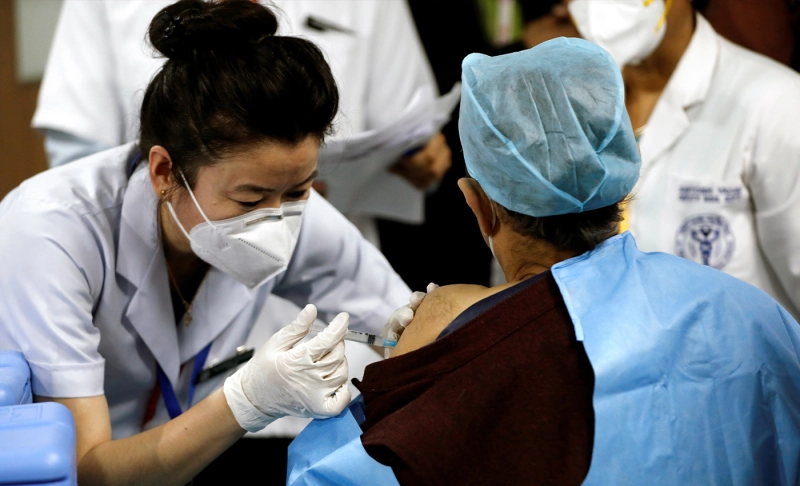By: Gayathri Loka
January 11 2023
False: Bill Gates, Johns Hopkins Center for Health Security, and WHO planned another pandemic.

The Verdict False
The event Catastrophic Contagion was held to create fictional exercises to help organizations and countries prepare for possible future pandemics.
Context
In December 2022, a Facebook post claimed that the Bill Gates Foundation, Johns Hopkins Center for Health Security, and the World Health Organization (WHO) simulated another pandemic. The post contained photographs from an event named "Catastrophic Contagion" and screenshots of an article describing the event that claimed another pandemic was approaching, planned by the three organizations. The post also had a video of people discussing a new disease called "Severe Epidemic Enterovirus Respiratory Syndrome 2025." However, this is false. Similar claims about a planned pandemic are baseless and have been debunked before.
In Fact
Catastrophic Contagion is a pandemic tabletop exercise conducted by the Johns Hopkins Center for Health Security in partnership with WHO and the Bill & Melinda Gates Foundation. The event was conducted in Brussels, Belgium, on October 23, 2022. A tabletop exercise is when participants come together to discuss and participate in activities to prepare themselves for hypothetical emergencies. The event had former Health Ministers and senior public health officials from Senegal, Rwanda, Nigeria, Angola, Liberia, Singapore, India, Germany, and Bill Gates as attendants and participants. The exercises included a series of WHO emergency health advisory board meetings addressing a fictional pandemic set in the near future.
The fictional disease they were presented with was "Severe Epidemic Enterovirus Respiratory Syndrome 2025." It is important to note that the event was only to help governments and organizations prepare for the possibility of a public health emergency; the exercises simulated were fictional. It is not an indication that these organizations can predict or plan future pandemics.
Logically spoke with Dr. Cagla Giray, Communications Director at Johns Hopkins Center for Health Security, to help debunk the claim. Dr. Giray said that the goal of the fictional exercise was to "highlight gaps in pandemic preparedness and to generate ideas for initiatives that countries could take now to improve the world's collective ability to save lives and livelihoods during future pandemics." She also highlighted that "the fictional outbreak depicted in the scenario was in no way predictive; rather, the pathogen in the exercise was imagined purely as an educational technique to help the participants contend with the types of policy dilemmas that are foreseeable during large-scale public health emergencies." The Bill Gates Foundation also told Logically that these social media claims are false.
The Johns Hopkins Center for Health Security has hosted similar events and exercises like Event 201, which was conducted in October 2019. It was a high-level pandemic exercise to understand where "public/private partnerships will be necessary during the response to a severe pandemic in order to diminish large-scale economic and societal consequences." Logically and other organizations have debunked similar false claims that Event 201 was "planning a pandemic." "The event was designed to test the private and public sector's response to a pandemic. It did not predict COVID-19," Logically reported in November 2022.
Reuters spoke to Rebecca Katz, professor, and Director of the Center for Global Health Science and Security at Georgetown University, who said such exercises are a good way to prepare for a possible pandemic, adding that WHO recommends such exercises.
The Verdict
Catastrophic Contagion was an event hosted by the Johns Hopkins Center for Health Security in partnership with WHO and the Bill & Melinda Gates Foundation. It created fictional exercises to help organizations prepare for possible pandemics and was misrepresented as pandemic planning. Similar claims about simulating pandemics have been debunked previously by Logically. Therefore, we are marking this claim as false.


